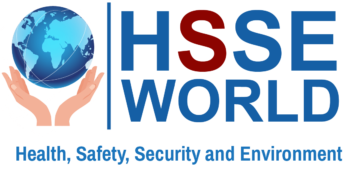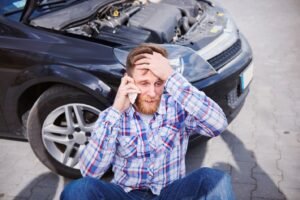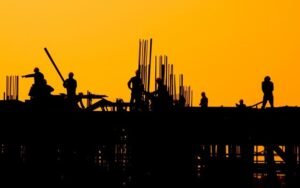Photo of the day: If An Earthquake Shakes You-Infographic free
13 min readAn earthquake is a sudden, rapid shaking of the earth caused by the shifting of rock beneath the earth’s surface. They strike without warning, at any time of year, day or night. Forty-five U.S. states and territories are at moderate to very high risk of earthquakes. so in our photo of today, you will learn Earthquake safety and what to do to keep your loved ones safe!
Also Read Minor and Severe Cuts: Workplace First Aid Basics

Stay Safe During an Earthquake
Drop. Cover. Hold on.
In most situations, you can protect yourself if you immediately:
- DROP down onto your hands and knees before the earthquake knocks you down. This position protects you from falling but allows you to still move if necessary.
- COVER your head and neck (and your entire body if possible) underneath a sturdy table or desk. If there is no shelter nearby, get down near an interior wall or next to low-lying furniture that won’t fall on you, and cover your head and neck with your arms and hands.
- HOLD ON to your shelter (or to your head and neck) until the shaking stops. Be prepared to move with your shelter if the shaking shifts it around.

If you are inside, stay inside.
DO NOT run outside or to other rooms during an earthquake. You are less likely to be injured if you stay where you are.
To reduce your chances of being hurt, take the following actions:
- If possible, within the few seconds before the shaking intensifies, quickly move away from glass, hanging objects, bookcases, china cabinets, or other large furniture that could fall. Watch for falling objects, such as bricks from fireplaces and chimneys, light fixtures, wall hangings, high shelves, and cabinets with doors that could swing open.
- If available nearby, grab something to shield your head and face from falling debris and broken glass.
- If you are in the kitchen, quickly turn off the stove and take cover at the first sign of shaking.
- If you are in bed, hold on and stay there, protecting your head with a pillow. You are less likely to be injured staying where you are. Broken glass on the floor can cause injuries if you walk or roll onto the floor.
DO NOT stand in a doorway. You are safer under a table. In modern houses, doorways are no stronger than any other part of the house. Doorways do not protect you from the most likely source of injury − falling or flying objects. Most earthquake-related injuries and deaths are caused by falling or flying objects (such as TVs, lamps, glass, or bookcases), or by being knocked to the ground.
If you are in a high-rise building, drop, cover, and hold on.
- Move away from windows and outside walls.
- Stay in the building.
- DO NOT use the elevators. The electricity may go out, and the sprinkler systems may come on.
- If you are trapped, stay calm. Try to get someone’s attention by tapping on hard or metal parts of the structure. Doing so may increase your chances of being rescued.
Also Read: Photo of the day: Protect your Head
If you are inside a crowded place, drop, cover, and hold on.
- Do not rush for the doorways. Others will have the same idea.
- Move away from display shelves containing objects that may fall.
- If you can, take cover and grab something to shield your head and face from falling debris and glass.
If you are outside, stay outside.
Stay inside if you are inside and outside if you are outside.
- Move away from buildings, utility wires, sinkholes, and fuel and gas lines. The greatest danger from falling debris is just outside doorways and close to the outer walls of buildings.
- Go to an open area away from trees, telephone poles, and buildings. Once in the open, get down low and stay there until the shaking stops.
- The area near the outside walls of a building is the most dangerous place to be. Windows, facades, and architectural details are often the first parts of the building to collapse. Stay away from this danger zone.
Also Read: Dropped Object Consequence Calculator
Stay inside if you are inside and outside if you are outside.
If you are in a moving vehicle, stop as quickly and safely as possible.
- Move your car to the shoulder or curb, away from utility poles, overhead wires, and under- or overpasses.
- Stay in the car and set the parking brake. A car may jiggle violently on its springs, but it is a good place to stay until the shaking stops.
- Turn on the radio for emergency broadcast information.
- If a power line falls on the car, stay inside until a trained person removes the wire.
- When it is safe to begin driving again, watch for hazards created by the earthquake, such as breaks in the pavement, downed utility poles and wires, rising water levels, fallen overpasses, or collapsed bridges.
If you are in a stadium or theater, stay in your seat. Protect your head and neck with your arms or in any way possible.
- Do not leave until the shaking is over.
- Walk out carefully watching for anything that could fall during the aftershocks.
If you are near the shore, drop, cover, and hold on until the shaking stops.
- If severe shaking lasts 20 seconds or more, immediately evacuate to high ground as a tsunami might have been generated by the earthquake.
- Move inland 2 miles (3 kilometers) or to land that is at least 100 feet (30 meters) above sea level immediately. Don’t wait for officials to issue a warning.
- Walk quickly, rather than drive, to avoid traffic, debris, and other hazards.
If you cannot drop to the ground, try to sit or remain seated so you are not knocked down.
- If you are in a wheelchair, lock your wheels. Remove any items that are not securely attached to the wheelchair.
- Protect your head and neck with a large book, a pillow, or your arms. The goal is to prevent injuries from falling down or from objects that might fall or be thrown at you.
- If you are able, seek shelter under a sturdy table or desk. Stay away from outer walls, windows, fireplaces, and hanging objects.
- If you are unable to move from a bed or chair, protect yourself from falling objects by covering up with blankets and pillows.
- If you are outside, go to an open area away from trees, telephone poles, and buildings, and stay there.
Stay Safe After an Earthquake
Expect aftershocks.
- After an earthquake, you may experience aftershocks. Aftershocks are smaller earthquakes that follow a larger earthquake. These can happen in minutes, days, weeks, or even months after an earthquake.
- If you feel an aftershock, DROP, COVER, and HOLD ON.
If you are trapped, attract attention to yourself.
- Try to attract attention to yourself. Send a text, bang on a wall or a pipe, or use a whistle to help rescuers find you.
- Protect your mouth, nose, and eyes from dust.
If you are in an area at risk for tsunamis, go inland and seek higher ground.
- In some cases, earthquakes can cause tsunamis in areas along the coast. These can happen minutes to hours after a strong earthquake.
- If you hear an official tsunami warning or notice signs of a tsunami, evacuate immediately. Get to higher ground as far inland as possible. Follow instructions from local authorities — they may direct you to a different route than you had planned.
- Visit the American Red Cross Tsunami Preparednessexternal icon webpage for information on how to prepare for and stay safe during and after a tsunami.
Be careful near damaged buildings.
- Do not enter a damaged building. Earthquakes can damage buildings and make them unsafe. Wait until local authorities tell you it is safe to go inside.
- Leave your home or building if you hear shifting or unusual noises. Strange noises could mean the building is about to fall.
Inspect your home for damage.
- Carefully check your home’s walls, floors, doors, windows, and staircases for damage. If you see structural damage, like cracks in the foundation or missing support beams, you may need to relocate to a shelter or another safe location.
- Check gas, electrical, and water lines for damage. If you smell gas or see a broken line, shut off the main valve from the outside. (Note: if gas is turned off, a professional must restore service.)
- Do not use matches, lighters, appliances, or light switches until you are sure there are no gas leaks. Sparks from electrical switches could ignite gas, causing an explosion.
If the power is out, use flashlights instead of candles.
- If you must use candles, keep them away from anything that can catch fire. Always stay near lit candles.
- Keep a fire extinguisher handy, and make sure your family knows how to use it.
Learn more: Electrical Safety While Working From Home: Safety Moment#30
Take care of any wounds or injuries to prevent infection.
- The risk for injury during and after an earthquake is high. Get first aid quickly to help heal small wounds and prevent infection.
- Learn more about proper wound care after a disaster.
If you can, help others in need.
- Check to make sure you are not hurt. If you are able, help others.
Stay away from power lines.
- Watch out for fallen power lines that may be hanging overhead.
- Stay clear of fallen power lines. Call the electric company to report them.
- Learn more on how to protect yourself from electrical hazards.
Prevent carbon monoxide poisoning.
Fuel-burning equipment creates carbon monoxide (CO). This can include equipment like generators, pressure washers, charcoal grills, and camp stoves. You can’t smell or see carbon monoxide, but if it builds up in your home, it can cause sudden illness and death.
- Never use portable gasoline or coal-burning equipment or camp stoves inside your home, basement, or garage. Keep it outside and at least 20 feet from any window, door, or vent.
- Use a battery-operated or battery-backup CO detector any time you use a generator or anything else that burns fuel.
- If you have a CO detector and it starts beeping, leave your home right away and call 911.
Protect yourself from animals and pests.
- Stay away from wild or stray animals after an earthquake. Call 911 or your public health department to report them.
- Report dead animals to local officials.
Drink safe water. Eat safe food.
- Throw away perishable foods that have not been refrigerated properly due to power outages; also discard foods with an unusual odor, color, or texture. When in doubt, throw it out.
- Listen to reports from local officials for advice on water precautions in your home. Do not use contaminated water to make baby formula, make ice, brush your teeth, wash and prepare food, wash your hands, or wash dishes.
- Bottled, boiled, or treated water is safe for drinking, cooking, and personal hygiene. Your state, tribal, local, or territorial health department can make specific recommendations for boiling or treating water in your area.
- keep food safe and use safe water after a natural disaster or emergency.
Clean up your home safely.
- Take steps to protect yourself and your loved ones during the cleanup after an earthquake.
Stay connected and informed.
- Listen to receive emergency information and instructions from your battery-operated TV or radio, social media, or cell phone text alerts.
- Register to the American Red Cross Safe and Well external icon This lets people know you are okay.
- Save phone calls for emergencies – text messages may be more reliable.
Take care of your emotional health.
During and after an earthquake, it is natural to experience different and strong emotions. Coping with these feelings and getting help when you need it will help you, your family, and your community recover from a disaster.
- Connect with family, friends, and others in your community.
- Take care of yourself and each other and know when and how to seek help.
Also Read: Photo of the day: Flood Safety Tips
Download
Before you Leave do not Miss out free Download of the Infographic
Photo of the day: If An Earthquake Shakes You-Infographic free
More Photos
- Photo of the day: 10 Essential Safety Tips for Driving in Hot Weather Conditions
- Photo of the day: best workplace safety tips
- Photo of the day: The Importance of Stop Work Authority in Maintaining Workplace Safety
- Photo of the day: Tomorrow’s Reward for Working Safely Today: Cultivating a Culture of Safety
- Photo of the day: Preventing slips and trips at work
- Photo of the day: Learn the DRSABCD action Plan
- Working with Electricity Electrical Accidents Guide for Electrical Workers
- Photo of the day: Hearing Protection Device Selection
- Photo of the day: If An Earthquake Shakes You-Infographic free
- Fire Safety Posters Free Download
- Photo of the day: First Aid for Electrical Burns-Infographic free
- Infographic: First Aid for Cuts and Scrapes free download
- Photo of The day: Work Safe with Lasers-Laser Safety free
- Photo of the day: Working Safely with chemicals and chemical Management
- Photo of the day: Safe work practices when using MEWPs ( updated)
- Photo of the day: Preventing Common Kitchen Hazards
- Photo of the day: Safe handling of Gas Cylinders and lecture bottles
- Photo of the day: Forklift Stability Triangle
- Photo of the day: Defective Tools Safe Work Practice
- Photo of the day: Lift With Your Legs Not With Your Back
- Photo of the day: First Aid for burns
- Photo of the day: The 7 Principles of HACCP
- Photo of the day: Working Safely with Suspended Loads
- Photo of the day: Heat Stroke First Aid and safety posters
- Photo of the day: Near-Miss Reporting and Posters
- Photo of the day: Ergonomic chair and office chair safety tips
- Photo of the day: Whole Body Vibration
- Photo of the day: Substation Safety Equipment
- Photo of the day: Bypassing Safety Controls Rules
- Photo of the day: Lightning Safety Tips
- Photo of the day: Overhead Power lines Clearance
- Photo of the day: Floor Marking
- Photo of the day: Types of Foot Protection
- Photo of the day: Types of Hand Protection
- Photo of the day: Lockout and Tagout Safety
- Photo of the day: Fall Protection Plans
- Photo of the day: Flood Safety Tips
- Photo of the day: Read All Labels Work safe
- Photo of the day: Run Project safely with Crane Hand Signals
- Photo of the day: Flagman and Traffic control
- Photo of the day: Managing Risks of Exposure to Solvents in the workplace
- Photo of the day: Scissor Lift Safety
- Photo of the day: HSE Bulletin Board
- Photo of the day: Arc-Fault Circuit Interrupters (AFCI)
- Photo of the day: Safe use of ladders and step ladders
- Photo of the day: Concrete Truck Driver Hand Signals
- Photo of the day: Extension Cord Safety Tips
- Photo of the day: Protect your Head
- Photo of the day: choosing the right Anchorage
- Photo of the day: Work-Related Asthma
- Photo of the day: Top FIVE Heavy Equipment Construction Site Safety Tips
- Photo of the day: sun safety in the workplace
- Photo of the day: Cannabis and Impairment in the Workplace
- Photo of the day: Position for safety and comfort-Safety Tips
- Photo of the day: Generator Safety
- Photo of the day: Controlling COVID-19 in the Workplace-Physical Barriers
- Photo of the day: Manual Material handling
- Photo of the day: Personal Protective Equipment last resort
- Photo of the day: WHMIS 2015 – Pictograms
- Photo of the day: Indoor Air Quality
- Photo of the day: Noise in the affected workplace
- Photo of the day: Fatigue at Work
- Photo of the day: Don’t be Driven to Distraction
- Photo of the day: working in heat and Humidex Rating
- How to use Plate Clamps Safely: Safety Moment#34
- Photo of the day: Sitting at work
- Photo of the day: 5 ways to reduce the risk of Slipping and Tripping
- Photo of the day: Preventing the spread of contagious illness
- Photo of the day: Incident Investigations
- Photo of the day: 10 Scaffold Safety Essentials
- Photo of the day: Effective Health and Safety Committees
- Photo of the day: New worker Orientation & Safety Orientation checklist
- Photo of the day: Workplace Inspection
- Photo of the day: musculoskeletal disorders
- Photo of the day: Emergency preparedness in the workplace
- Photo of the day: Mental health in the workplace
- Photo of the day: Trenching Safety Tips That Can Save a Life
- Photo of the day: Dangerous Goods Classes
- Photo of the day: Safety Equipment for Confined Spaces
- Photo of the day: Tips to reduce Heat stress in the workplace
- Photo of the day: hierarchy of controls
- Your steps to chemical safety
- H2S Gas and how to handle its Emergency
- Photo of the day: Importance of Mock drill and Fire Action Emergency Procedure
- Photo of the day: Choosing the Right Face Mask and the difference between a respirator and face mask
- Photo of the day: Confined space safety Precautions
- Breath Safely: The Proper Use of Respiratory Protection
- Photo of the day: Electric shock survival
- Photo of the day: Chemical Spill Emergency Response
- Photo of the day: Construction Site fire Safety
- Photo of the day: Confined Space rescue
For Many Safety Resources please visit SAFETY BAG



